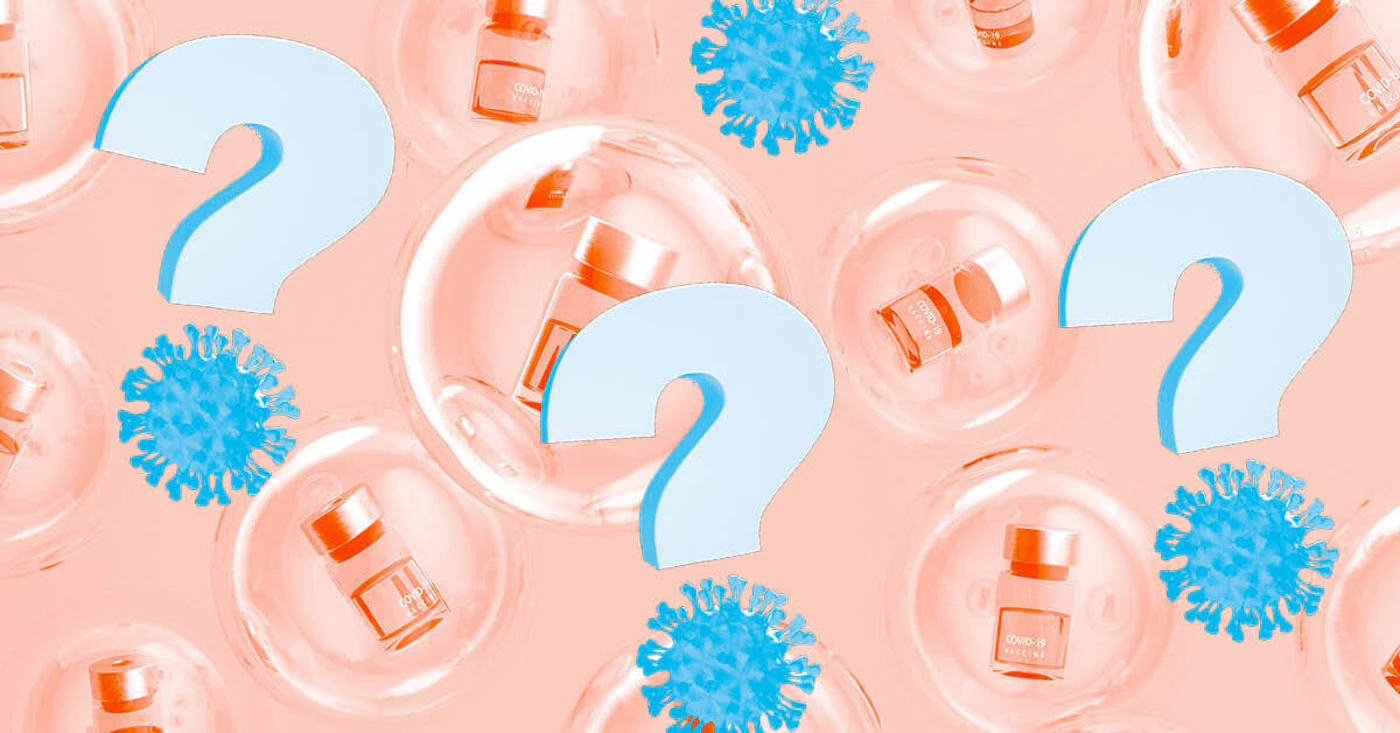The CDC and medical experts say the COVID vaccine is safe for people living with HIV. One calls it “not an option, but a must.”
As the rollout of vaccinations for COVID-19 ramps up, many people living with HIV are struggling to decide whether or not the shot is appropriate for them. Based on early data, most experts agree the vaccine is safe for them, so long as the patient doesn’t have a history of anaphylactic allergic reactions to vaccines.
“The CDC has made it known it’s appropriate for anyone to take the vaccine regardless of their status, except if they’ve had a negative anaphylactic response to an earlier vaccine,” Dr. Benjamin Simmons, a physician and board member of RAIN, an HIV nonprofit in Charlotte, N.C., told COURIER.
Sorting Fact From Fiction: Sign Up for COURIER’s newsletter.
The vaccines use messenger RNA (mRNA), which delivers the coronavirus blueprint to cells. This triggers an immune response that builds up a defense against COVID-19. The Centers for Disease Control and Prevention issued guidance on Jan. 1 advising that the vaccination be offered to persons aged 16–64 with pre-existing comorbid medical conditions. That includes people living with HIV.
Pfizer and Moderna drug companies initially excluded people with HIV from the vaccine trials, but activists successfully pushed for inclusion. According to the Federal Drug Administration, Moderna reversed their position and recruited 176 people living with HIV out of 30,000 research participants. Only one of them, from the placebo group, later contracted COVID-19. None of the HIV+ patients who received the vaccine did.
Dr. Simmons recommended not consuming alcohol within three days before and after vaccination, to avoid blunting an immune response, and to avoid premedicating with Tylenol or ibuprofen prior to getting the vaccine, as that also can affect the body’s immune response.
“On the day of vaccination, HIV+ patients should take their regular medication but no pain meds. They can take something to help with symptoms after they develop,” Simmons said. “But try to wait as long as possible, close to 24 hours, before taking pain- or fever-reducing medication after the shot.
RELATED: ‘Absolute Game Changer’: How the Affordable Care Act Helped Save the Lives of People With HIV
Johnny Wilson, RAIN’s outreach director, called the vaccine “not an option, but a must” for people living with HIV. His partner caught COVID last spring and though he was the primary caregiver, he managed to quarantine safely and avoid contracting it. Still, he got the vaccine as soon as it was available, he said.
“I’m family-oriented and I miss loving on and hugging on my grandmother. The risk is worth it. And because I work with clients, my potential exposure is too high not to get the vaccine to protect myself a little more, beyond wearing a mask and staying six feet apart,” Wilson told COURIER. “What’s wrong with a little extra protection? You might survive this but who’s to say your elders can? Why not protect the people you love?”
Despite his example, there remains a sense of paranoia in Wilson’s social circles because of the speed with which the vaccine was developed. “If you don’t understand the science behind it, an argument is not going to make a difference. Those individuals are not going to be convinced without debunking a lot of myths,” Wilson said. “Thankfully, I’ve gotten better tools to have those conversations. The conversations are lasting longer. And that’s progress.”
One common misunderstanding is how immunization works. According to the CDC, a person could be infected with the coronavirus just before initial vaccination. This can result in cases where patients have been vaccinated and still develop COVID within a few days. The side effects of the vaccine itself may include headaches, body aches, low-grade fever, and injection site soreness for a day or two, but if a patient develops symptomatic cough, congestion, or a higher fever that lasts longer than a day, they should get evaluated for COVID.
As well, a patient could be exposed to the virus just after initial vaccination, and because their body did not have enough time to build protection, they get sick. Because the vaccines require two rounds of shots, patients only have partial immunity after the first shot. The full 95% effectiveness doesn’t take place until about seven days after the second dose.
RELATED: Johnson & Johnson’s COVID Vaccine Could Be Approved Soon. Here’s Why That’s a Big Deal.
As of Jan. 21, 17.5 million vaccination doses had been administered across the country, according to the CDC.
Dr. Simmons, who has taken the vaccine himself, hopes for more research to be released on the length of immunity. “It’s really more the effectiveness of the vaccine that is in question for people who are immunocompromised. The data shows the vaccines are 95% effective to prevent contraction of the COVID virus, but we don’t know if people will need a booster in a year or six months.”
“It is very normal to feel anxious or nervous about getting a vaccine,” he continued, “but both Moderna and Pfizer have had over 70,000 patients participate in the trials. Do your research and ask questions to eliminate the worries. We’re medical professionals; we’re not recommending anything we ourselves are not taking.”




